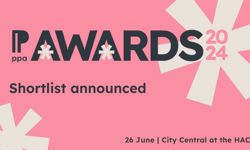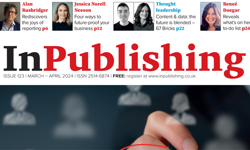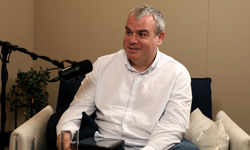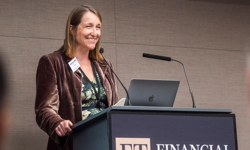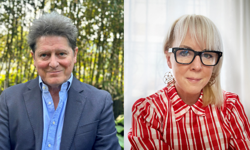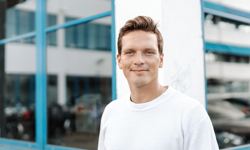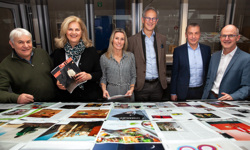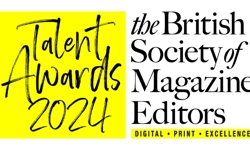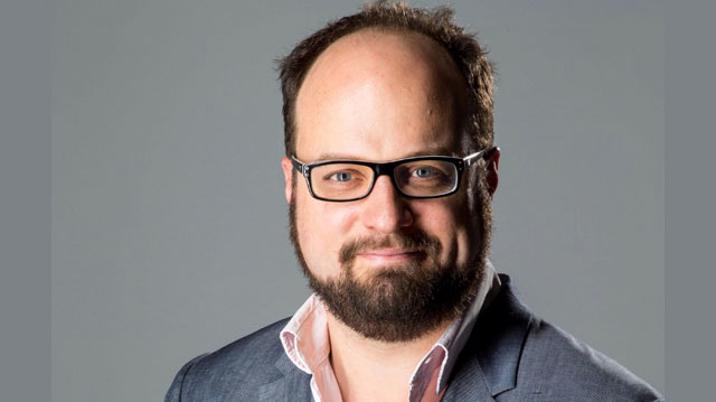
Q: How did you get where you are today?
A: I guess I’m a bit unusual in that I didn’t come up through sales or editorial. I started my working life at Barclays Bank but quickly realised it wasn’t for me. I managed to get a job as an analyst at BBC Worldwide and that launched me into a career in media.
I worked on various projects before, in 2004, I was asked to project manage the launch of olive magazine. That was my first real career highlight and it resulted in a move to lead the creation of BBC Magazines’ international licensing business. Over the next seven years, it grew into a multi-million-pound portfolio and at one stage we had partners in something like 50 different territories across the globe.
BBC Magazines was sold to private equity in 2011, and in 2013, I decided to move overseas to join Gulf News, a large publisher based in the UAE. I ran their magazine business for three and a bit years then set up my own consulting business.
In March of this year, I was lucky enough to be asked to apply for the role of FIPP and here I am!
Q: What is your typical media day?
A: I guess, like most people, my day starts with digital media. I’m a big fan of Flipboard and I generally start by looking through the stories on my Twitter tile there. Usually, there will be one or two pieces I want to read over breakfast. The Washington Post is on a good run at the moment so they’re normally in there somewhere.
Then I’ll move on to the trade press, using the newsletters from organisations such as The Drum, Digiday, Bo Sacks and, of course, InPublishing to identify stories that are relevant to our organisation. I use Evernote a lot and will pin stories there that I want to refer back to later, usually because they’ve triggered an idea for a speaker at one of our events or an article for our newsletter.
I’m not a massive watcher of live TV, other than sport, so if I’ve got some free time in the evening, I’ll watch something on AppleTV or Netflix.
I should give an honourable mention to Spotify, which I’m very fanatical about and is generally on in the background all day, and of course to the BBC News website, which I check a few times a day.
Q: What is the secret to a happy working life?
A: I think the most important thing is to have a passion for the sector you’re in. Pretty early on in my time at Barclays, I realised I just had no interest in the banking world and resolved that I was only going to work in a sector that interests me. Media has always been a passion and so it was a real ‘punch the air’ moment when I got my first job at the BBC.
Q: How do you see the sector evolving?
A: I think the most interesting evolution in media currently is that all businesses can now operate in any medium and succeed. There’s been a great recent example of that with Time Inc UK securing their first TV commission. This development opens the way for non-traditional players to come into the market and succeed. I was fascinated to read recently that Marriott Hotels have set up a series of content hubs, and that they’re finding that original video content is a strong driver of hotel bookings. It’s really important that FIPP brings together the traditional and emerging players, as there are plenty of opportunities to work together in the crossover between these two worlds.
It’s interesting too that there is almost a ‘two-speed’ evolution in media, with B2B players adapting much more rapidly than consumer. B2B is now focused almost entirely on data and events. Clearly this was partly through economic necessity but it’s had a positive outcome in that the existential threat seemingly posed by digital has gone away, to be replaced by a host of new growth opportunities.
In consumer, I think the range of opportunities is, if anything, even broader than in B2B but many players have been a lot slower to adapt. The threat is no less existential for some but perhaps the timescale is a bit longer than in B2B. Nevertheless, we’re finding that, increasingly, our consumer members are making good money from digital and other new ventures and that in many cases, these are now larger businesses than print.
It would be easy to assume that the two worlds are diverging but I don’t think that’s true. Both B2B and B2C players fundamentally rely on content and data to power their businesses. The balance between these two may be different at the moment but even that may begin to converge in the future. There are, after all, some enormous consumer-facing media businesses, the Facebooks of this world, that are entirely dependent on data to power their success.
Q: Who has particularly influenced you?
A: I’ve had some great bosses in my career, particularly at the BBC. Firstly, Ian Watson, who really empowered me to build the international business at BBC Magazines. I was then incredibly fortunate to work for Nick Brett for a number of years – he taught me so much about the industry and remains a great friend and advisor to this day.
I’d also highlight a guy called Kevin Lawrence, a business coach I worked with at Gulf News. He showed me how powerful it can be to learn from the examples of other business leaders.
Q: What advice would you give someone starting out?
A: Wow, that’s such a big question, I’m not sure where to start. I guess the first thing would be to expect the unexpected. You can try to plan your career but like all good plans, it will change the moment you start trying to follow it.
One piece of advice I wish I’d had earlier in my career is “Talk Less, Listen More”. There’s always this desire to show you’re contributing and that can sometimes manifest itself through lots of talking when just listening to what everyone is saying can be much more valuable.
Finally, I would say, always volunteer for everything. The more you’re willing to do, the more opportunities will come your way.
Q: How do you relax outside work?
A: I’ve got two kids so I spend a lot of time with them and we like cycling together in particular. My wife and I enjoy the cinema, although we don’t get the chance to go as often as we would like. When I’m not doing that, I might play the odd game of golf and I’m also trying to teach myself to draw properly. At some point, I might even get around to finishing off the book I started writing many years ago too!
Q: In an alternate life, what would you have done?
A: Well, I grew up in Portugal and I’d love to have stayed living there, so perhaps a semi-successful author living near Lisbon might have been a nice alternative career!
The 41st FIPP World Congress takes place at Tobacco Dock, London from 9-12 October.


